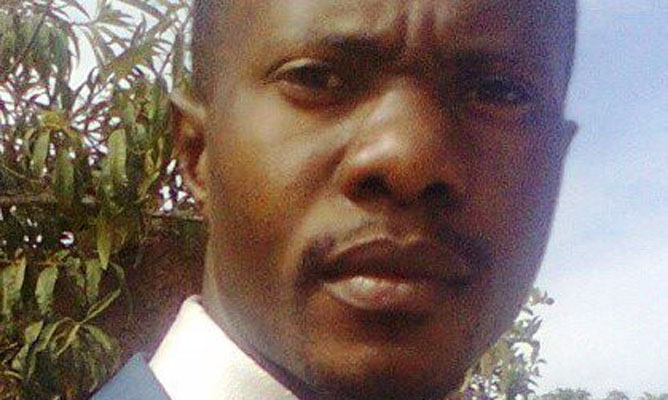
In the study of law, there is a very interesting phenomenon in the rules of evidence, which is known as character evidence. The leading and reception of evidence in legal proceedings is bound by many rules and character evidence is chief among the rules.
Character evidence is a way of looking into the character of an accused person with a view to understanding whether he is a likely person to commit a particular offence. Character evidence is evidence of tendency or disposition.
For example, when a person has been accused of theft, character evidence is the type of evidence which seeks to dig into the character of the person and past tendencies to see the person’s likelihood of committing such an offence. It’s evidence that borders around the credibility of an accused person.
However, one of the best things I know about the law is that it does not allow or admit the use of character evidence, as a general thing, because of its obvious prejudicial effect.
True, the person in the example may be facing a theft charge, but digging into his past may prejudice him in the specific instance since he may be innocent, hence its inadmissibility.
The law prefers to deal with every matter in its own context. It will be wrong to convict someone simply because he is the likely person to commit a certain offence. There are limited circumstances in which use of character evidence is allowed. One such instance is when a person holds themselves as credible and not the type of person to commit a particular act. In other terms, casting aspersions or pointing fingers is a way of amplifying one’s own credibility. Thus, one becomes a good candidate and literally invites scrutiny of his own character by pointing fingers.
Prophetic Healing and Deliverance (PHD) Ministries’ Walter Magaya is currently in the eye of a storm after he wrote a second piece of work purportedly exposing apostolic sects. Apostolic sects refer to the countless groups of white garment-donning worshippers who, among other things, shave their heads and are conspicuous with their long beard.
They also have clay pots on their shrines and use stones and water for healing. They do not read from the Bible. Magaya launched a stinging attack on them, alleging that they are powered by the underworld of the marine kingdom. Magaya states among other things that apostolic sects are used by a marine spirits, hence their insistence on congregants to remove shoes at their kirawa (place of worship) and their insistence on males to fold trousers to knee level because they would be operating, spiritually, in water. Magaya made a lot of remarks with a damning effect to the apostolic faith and naturally, this has stirred bumblebees, which are presently swarming around him.
- Chamisa under fire over US$120K donation
- Mavhunga puts DeMbare into Chibuku quarterfinals
- Pension funds bet on Cabora Bassa oilfields
- Councils defy govt fire tender directive
Keep Reading
Now, there is no problem with anyone exposing false religion. In fact, it is crucial to expose false religion as it saves thousands, if not millions, labouring under delusion. It is undeniable that Magaya shows, in his publication, that he possesses intimate knowledge of the happenings in apostolic groups. But as the old saying goes: “Those who live in glass houses must not throw stones.”

This saying is succinct and pregnant with self-evident sense. Most people think it’s just a secular saying, but a clear analysis would show that it was Jesus Christ’s philosophy. He said to an overexcited crowd that had gathered to stone an adulterous woman: “Let him who is without sin cast the first stone.” This was Christ’s way of saying they were all guilty and none had the moral ground to attack or shame the woman.
By condemning others, one draws the limelight to themselves and this, whether consciously or unconsciously, is what Magaya has done to himself. Condemning others carries a latent message that one is more credible. He has provoked character evidence. He has opened the floodgates to closer scrutiny of his West African-linked ministry.
Any conduct to dig into the alleged clandestine operations of PHD ministries is now well in place and justifiable. The gateway has been opened for apostolic sects to hit back and already they have justly begun firing from all cylinders. People will not be wrong to try and really get to the bottom of how the adultery lawsuit in which Magaya was dragged to the courts by a man claiming that he was bedding his wife actually ended.
People would not be wrong to want graphic details of how exactly one woman, Chipo Chakanyuka, an usher with PHD, committed suicide in a Botswana prison after she was caught with three pieces of gold at the border post while on church business.
People would also want detail on how 11 innocent souls perished in Mbizo Stadium in Kwekwe where an inquest is yet to be done. People may also want to really understand the link between West Africa and Magaya’s healing powers and who exactly christened him a prophet, among other things. Magaya has ignited a voracious fire that promises to rage on. He should have known better than to continue attracting controversy in this manner.
I believe people should heed Christ’s sage advice: “Let him who is without sin cast the first stone.”
l Learnmore Zuze writes in his personal capacity. He can be contacted on email: [email protected]











